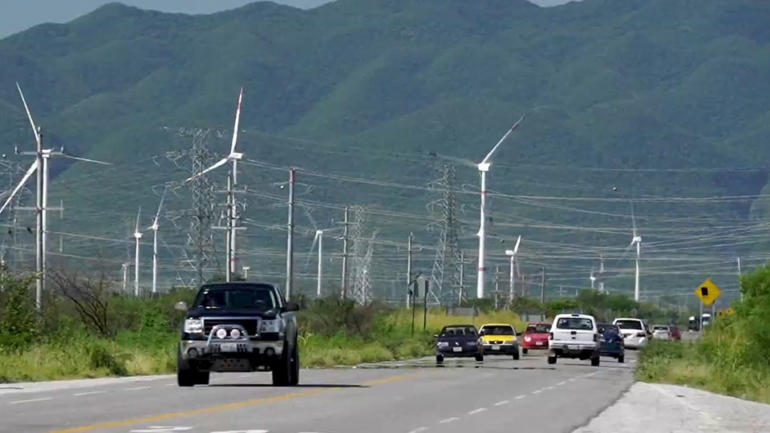Countries across the world are increasingly looking to renewable energy sources to limit the impact of environmental damage to the planet. Mexico, for example, recently installed Latin America’s largest wind farm, but it has caused problems within the local community. CGTN’s Alasdair Baverstock reports.
The Eolica del Sur on Mexico’s Pacific Coast built to harness the natural power of the wind. It was completed in May. With 132 wind turbines, it’s capable of generating enough power to supply electricity to more than 400,000 Mexican households annually.
A serious achievement, recognized across the energy sector.
“Mexico has a requirement to fulfill the Paris Agreement, and abide by international climate change standards, so by 2024, Mexico needs to be producing 35% of its electricity from renewable energy, so having the largest wind plant in the continent is obviously a benefit,” Mexico Energy Consultant Rajan Vig.
Eolica del Sur is the largest wind farm in Latin America, and that’s part of the problem. With more than 130 wind turbines, the facility takes up a lot of real estate-causing resentment here in the state of Oaxaca. The developer faced opposition from indigenous people and human rights groups. They say wildlife has been disturbed and promises to build community parks have been broken.
Rodrigo Penalosa represents one of the activist groups affected by the project.
“This project has caused a lot of problems since it arrived. From the start, it was presented by the government as a solution to the extreme poverty we have in this region. It occupies land that we consider belongs to the community. There’s been a lot of conflict. Our people have blocked the entrances to the facility, and occupied the power station where the electricity is sent to the wider network” Penalosa said.
Despite repeated requests for interviews, Eolica del Sur declined to speak with CGTN. For Gonzalo Bustillo of the local environmental council, it’s a noble project whose realization was badly executed.
“Everything has been done under secrecy, and the company offers no comment. Wind farm companies may bring benefits, but when it comes to the case of Eolica del Sur, there has been no transparency when it comes to community agreements and environmental obligations. The facility hasn’t been functioning very long, but they started badly,” said Bustillo of the Juchitan Ecological Foundation.
The wind farm has been a leap forward for Mexico’s renewable energy industry, but for the local community, it represents little more than another case of marginalization by authorities for whom their needs come last.
 CGTN America
CGTN America

